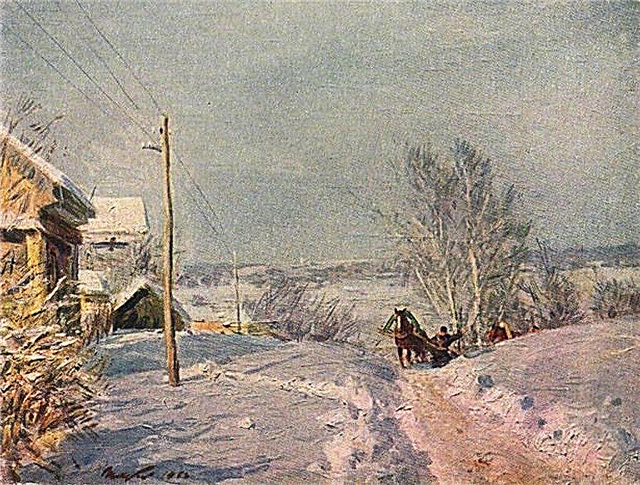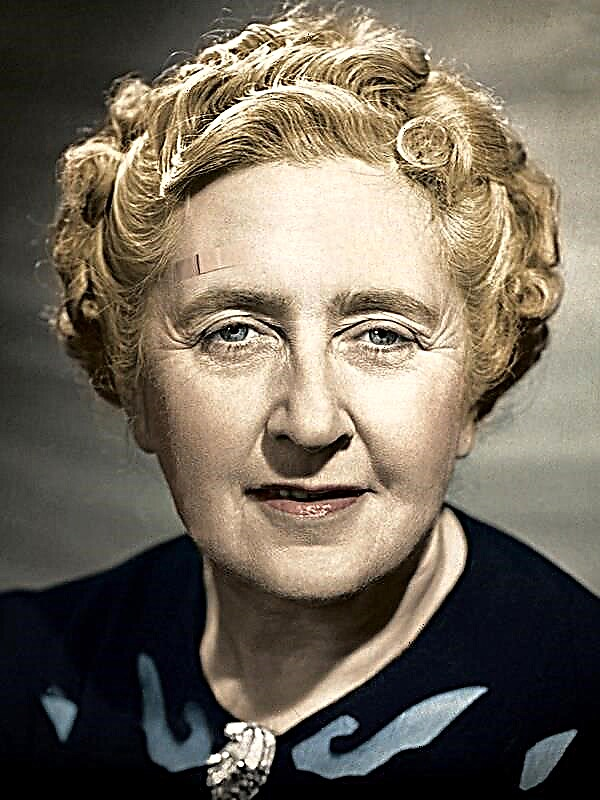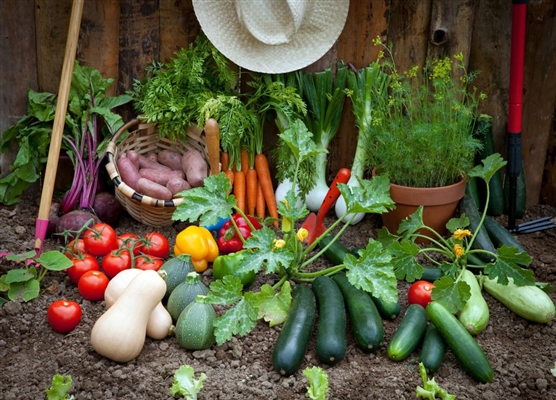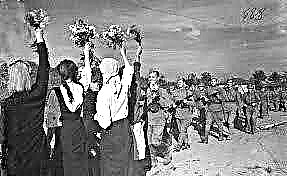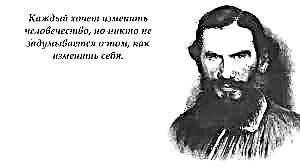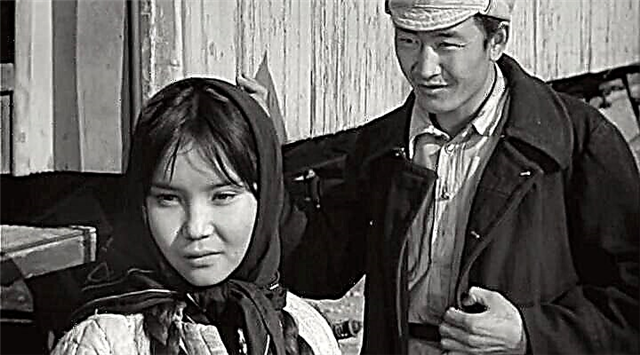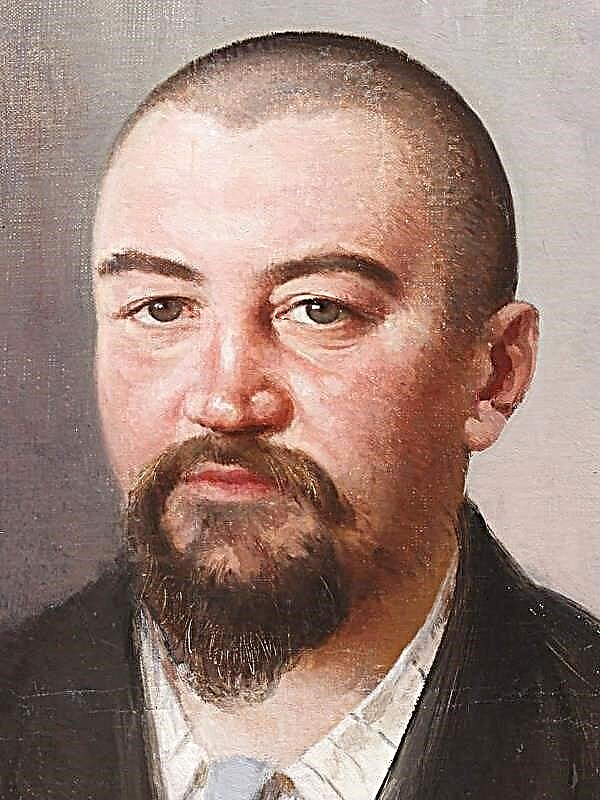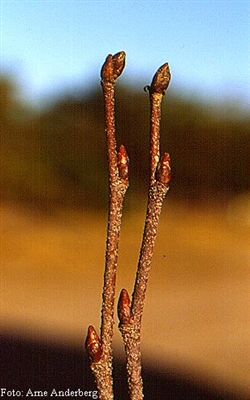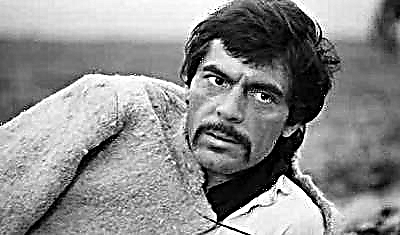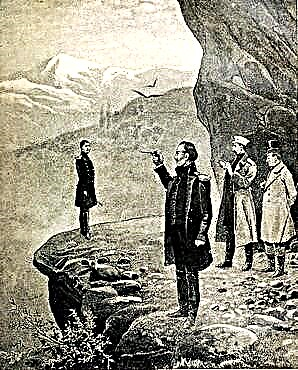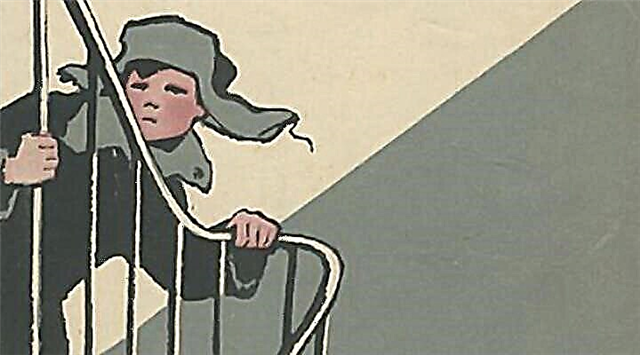A man in his thirties is walking along a dusty road among Oklahoma corn fields. After serving in prison for an accidental murder, he returns home to the farm. He leaves the prison ahead of schedule and therefore has no right to leave the state. At the farm, he must be expected by a large family of Jodes: grandfather with grandmother, father with mother, three brothers and two sisters. Along the way, Tom meets former Jehovah's preacher Jim Casey. They continue the journey together. But Tom still does not know that farmers are driven from their plots. It is now unprofitable for owners to lease land. The tractor will process the field much faster than several farming families. People are ready to protect the land that they consider their own. But who to shoot at? The tractor driver who opens your yard? Or the director of the bank to which these lands belong? And people are forced to submit. With horror, Tom sees an empty yard and a house littered to one side. A neighbor walking by by the side says that the Jodes are getting ready to leave on Uncle John’s farm. Tom and Casey go there. The family greets Tom with joy. The next day, the whole family sets out on a small used truck. Casey preacher rides with them. They are heading to California, hoping to find work and housing there, as promised in the flyers. Upon reaching the main highway, their truck flows into a stream of refugees who are moving to the West.
On the way, the Jodes meet the husband and wife Wilsons. During one of the stops in the Wilson's tent, old grandfather Jode dies. He is buried right next to the road. Tom and younger brother Al help the Wilsons fix the car, and the two families continue their journey together.
It seems that the whole country is fleeing to the West from some kind of enemy. When one family makes a halt, several more always stop nearby. At night, along the highway, worlds arise with their laws, rights and punishments. A person who has food feeds the hungry. They are warming the chilled one. A family in which someone dies finds a handful of coins near the tent in the morning. And as they move toward the West, these worlds become more and more perfect and comfortable, because builders have experience. Here begins the transition from "I" to "we." The western states are worried - some changes are near. And at this time, half a million people are moving along the roads; another million is gripped by anxiety, ready to take off at any moment; another ten million only show signs of concern. And tractors conduct furrow behind furrow on deserted land.
The closer to California, the more often people who run in the opposite direction come across the road. They tell terrible things. That a lot of people came in, there is not enough work, they pay pennies, which you can’t even feed on. But the hope that the country with the advertising image - white houses among green gardens - still exists, leads people forward. Finally, having overcome all the difficulties of a long journey together, the Jodes and Wilsons get to California.
Having crossed the mountains, they make a halt by the river. Ahead is the last heavy crossing through the desert. And then the older brother Noah suddenly refuses to go further and, without saying goodbye to anyone, goes down the river, near which, as he says, you can always feed. People have not had time to rest properly, and a sheriff is already appearing near the tents. He tells everyone to get out of there. In the evening, the Jodes leave to cross the desert at night until there is no sun. Wilsons remain - Wilson's sick wife is unable to move on.
When moving across the desert, the Jodah dies grandmother. She is buried in the city of Bakersfield on a public account. They arrived in California with only about forty dollars, and they did not have enough money for the good funeral that the grandmother dreamed of.
A fertile country is hostile to crowds of hungry nomads. The owners are arming themselves with a rifle and some with a pickaxe, preparing to defend their property. Wages are falling. People eager for work, ready to do anything to feed their children, fill all the roads. And in their minds rage begins to roam.
The Jodes stop at a roadside camp called Hooverville. Here, Koni, the husband of Tom Rosa Saron’s sister, leaves the family. Pregnant Rose is worried about his departure. On this day, a contractor appears in Hooverville, hiring workers to pick fruit. He is accompanied by sheriff witnesses. One young man requires documents from a contractor. Witnesses immediately accuse him of red agitation and try to arrest him. The brawl begins, in which Tom participates. To prevent Tom from having trouble with the police, Casey's preacher takes the blame. Witnesses take him away with them, saying goodbye promising to set fire to the camp. Late in the evening, the Jodes leave. They move south to track down the Widpatch government camp they heard of at Hooverville. People speak well of government camps. There is self-government, the police do not scam there. There is even hot water there. There you can feel like a man. At night they are stopped by a group of armed people and demands that these damned Oka (i.e. Oklahoma) go in any other direction. Tom turns the truck, barely restraining himself so as not to cause a fight. While they roam along country roads, mother tries to calm Tom. She says that we don’t have to worry about these people, because the people cannot be destroyed, they will live forever. Tom is surprised by her reasoning.
The government camp has really great living conditions. But there is no work in the vicinity. People are trying to understand what needs to be done in order to live humanly. Among them, agitators appear who urge to create alliances, hold on to each other, because the authorities are able to fight only with loners. California has good land. In the fruitful year, the branches bend under the weight of the fruit pouring in the juice and the vine is heavy from grapes. But purchase prices are too low. Small farmers can not always harvest, they do not have money to pay for cleaning even at the lowest price. Only large owners with canneries can survive. And the crops rot, and the smell of decay soars over the country. And children die from malnutrition, because food is rotting intentionally. Mountains of fruit burn, sprinkled with kerosene. Potatoes are thrown into the river. People come to pick up products, but security drives them away. In the eyes and in the souls of hungry people, heavy clusters of anger are poured and ripen, and now they will not ripen for long.
Soon Jodes leave Widpatch. In search of work, they travel north. Suddenly, policemen on motorbikes block their path and offer a job. The car turns off the highway, and Tom is surprised to see workers standing along the road and chanting something. Accompanied by motorcyclists, the Jowd truck, along with other cars, drives into the gates of the fruit picker camp. The whole family begins to work on the collection of peaches. After working all day, they earn only for dinner. Prices in a local shop are much higher than in other places, but the seller is not the owner of the shop, he is also just an employee, he does not set prices. When the mother takes groceries from the store, she does not have enough money for sugar. She is trying to persuade the seller to let her go into debt. In the end, he dispenses sugar to her by putting his money in cash. When leaving, mother tells him that she knows for sure that only poor people should go for help, only they will help.
In the evening, Thomas goes out to wander around the camp. Seeing a lonely tent standing, he goes up to it and finds Casey the preacher there. Casey tells Tom about her prison experience. Casey believes that mostly good people get into prison, whom need makes them steal, all evil is in need. Workers at the camp, Casey explains, are on strike because the pay for work is prohibitively reduced, and the Jodes and those who come along with them find themselves in the role of strikebreakers. Casey is trying to persuade Tom to speak in front of the workers in the camp, so that they also begin to go on strike. But Tom is sure that people who get hungry and finally get at least some work will not do it. Suddenly the workers hear creeping steps. Tom and Casey exit the tent and try to hide in the dark, but stumble upon a man armed with a stick. This is exactly what Casey is looking for. Calling him a red bastard, a stranger strikes, and Casey falls dead. Without remembering himself, Tom grabs a stick from the enemy and hits him with all his might. The insensible body falls at Tom's feet, Tom manages to escape, but he is also injured - his nose is broken. The next day, Tom does not go out. From conversations in the camp it becomes known that the man beaten by Tom is dead. Police are looking for a killer with a disfigured face. The strike ended and the pay for work was immediately halved. Nevertheless, in the garden, people are fighting for the right to work.
Ten-year-old Winfield falls ill from malnutrition. Rosa Sarona will soon give birth. The family must find a good place. Having hid Tom among things at the bottom of the truck, the Jodes safely get out of the camp and drive along country roads. Toward night, they come across an announcement that they need cotton pickers. They remain, settle in a freight car. Earnings are good, enough not only for food, but also for clothes. Tom hides all this time in the thickets on the banks of the river, where his mother carries him food. But one day, little Ruth, playing with her peers, says that her big brother killed a man and is hiding. Tom himself already thinks that staying in this position is dangerous for him and for the whole family. He is about to leave and do the same as the late Casey, who had become an agitator from a preacher, to raise the workers to fight.
Cotton picking is coming to an end. Work will now be gone until spring. The family did not have any money left. The rainy season begins. The river overflows, and water begins to flood the cars. Father, Uncle John and several others are trying to build a dam. On this day, Rosa Sarona gives birth to a dead child. The river breaks through the dam. Then the mother decides that she needs to go somewhere where dry. Having walked a little along the road, they see a barn on the hill and rush there. In the barn lies a man dying of hunger. The boy, his son, in despair begs to save his father. Mother inquiringly looks into the eyes of Rosa Saron, whose breast after birth is swollen from milk. Rosa understands her gaze, silently lies down next to the dying, pulls his head to her chest, and a mysterious happy smile illuminates her face.

